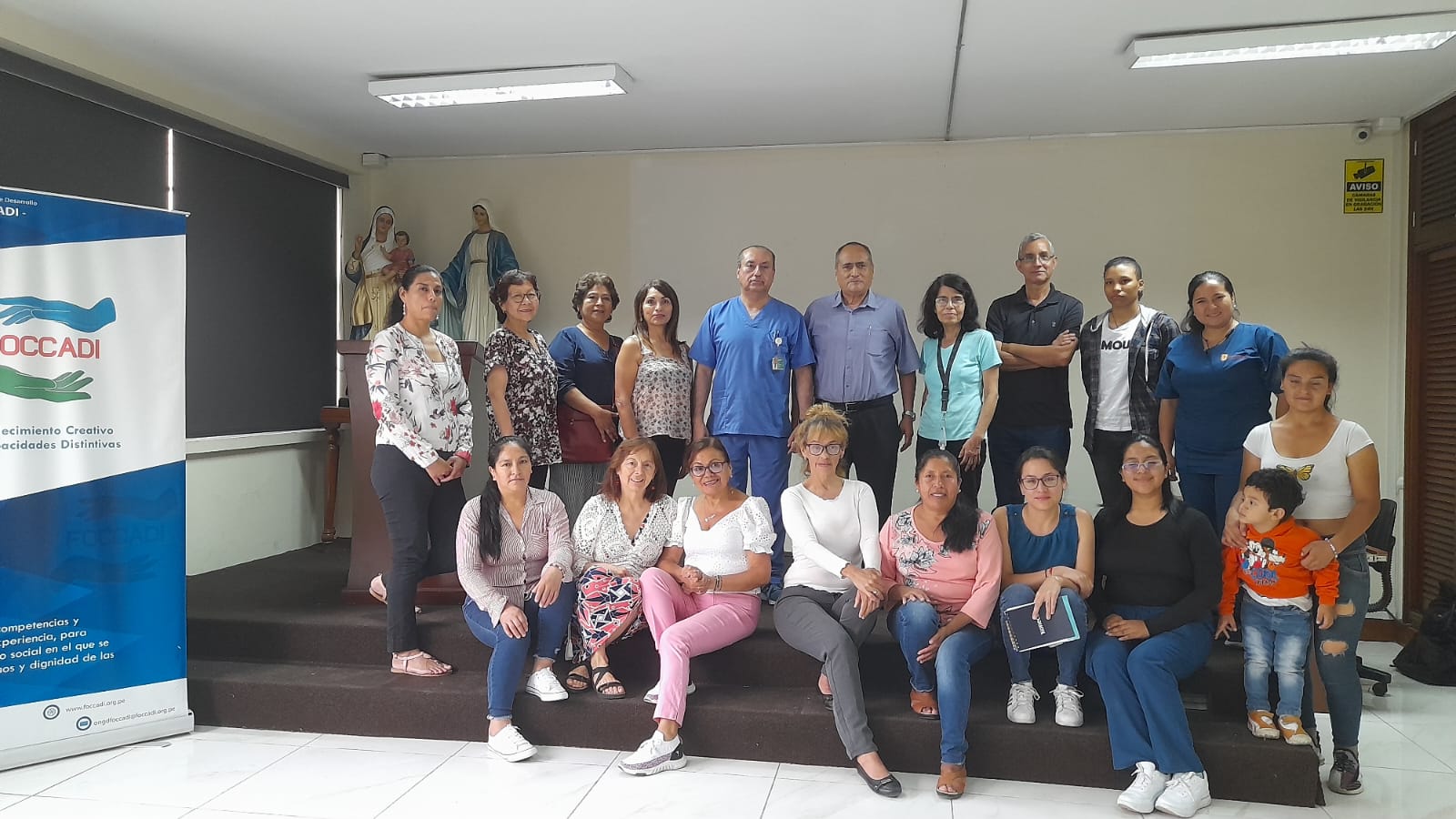Training to Remember: Foccadi NGO trains caregivers of elderly people with dementia in Peru
The majority of those enrolled in the training programs are individuals who, far from seeking employment, wish to have adequate preparation to assist their family members with this disease


In Peru, nine out of ten people suffering from dementia do not receive adequate care due to the shortage of trained professionals to properly treat this condition. Having dementia is not only sad for the patient but also difficult for family members, who have little information and must deal with this condition that destroys the neurons of their loved ones.
By 2023, there were 4 million elderly people registered in Peru, of whom nearly 300,000 (7%) had cognitive impairment, 210,000 (70%) of them suffering from Alzheimer’s, and 95% did not receive adequate care. Faced with the enormous gap in the healthcare system, Edwin Delgado founded the NGO Creative Strengthening of Distinctive Capacities (FOCCADI), to work to improve the quality of life of people diagnosed with Alzheimer’s and other types of dementia. Edwin became aware of this reality firsthand when an innocent question from his friend revealed the harsh truth: “Who are you?”, she said while they were talking. At that moment, he realized that the disease was gradually destroying the memory of a loved one. Helplessness and concern led him to a tireless search for answers and possible solutions. He couldn’t just stand by and do nothing. Thus, FOCCADI was born in 2013.
This nationally recognized organization was created to train companions/caregivers of people with dementia. “Our goal is to care for and protect the rights of people in vulnerable conditions. We focus on elderly people with dementia because there is no primary health care provided by the government for these individuals,” explains Edwin. FOCCADI, with the support of Spanish medical and psychological professionals, developed a specialized training program that provides the necessary tools to care for people with dementia appropriately and compassionately. “People with this disease cannot express their desires and in many cases may appear aggressive. So, what happens is that people who are not prepared to deal with these cases give them sleeping pills and this worsens the disease,” says Edwin.
Affection and good treatment as therapy
For this disease that deteriorates the conditions of the elderly, there is no cure. The multidisciplinary team working at Foccadi argues that although this condition causes patients to lose their reasoning, what they do feel is affection and punishment.
“What helps patients the most is good treatment. They don’t remember the present but they do remember the past. Of all the medical care processes, the good treatment received by the patients accounts for 50% of disease progression retention, the other 50% is just medicine,” says Edwin.
The organization not only offers training but also advocates for the rights of elderly people with dementia. Aware of the lack of primary healthcare from the government, Foccadi works tirelessly to fill that gap and ensure that these individuals receive the care and attention they deserve.
Thanks to the joint effort of Edwin and his team, Foccadi has gained recognition and support nationally. Their work has been awarded by the Ministry of Health, the Ministry of Women, and the Ministry of Justice, and they have established partnerships with international organizations, such as the Alzheimer Catalonia Foundation of Spain, to strengthen their work and expand their reach.
The road hasn’t been easy, but every step taken by Foccadi represents hope for those facing dementia. With determination and dedication, they continue their mission to provide care, understanding, and dignity to those who need it most. Dementia is a term that encompasses several diseases that affect memory, thinking, and the ability to perform daily activities, although the most well-known is Alzheimer’s.
Training Program
The Foccadi team developed a specialized curriculum to train caregivers of elderly people with dementia. This curriculum included a multidisciplinary team consisting of 8 doctors who are currently responsible for providing training: a neurologist, a neuropsychologist, a psychiatrist, a psychologist, a physiotherapist, a nursing graduate, a lawyer, and an education specialist.
The program that trains the trainers has filters because not all people are suitable to attend to patients. Therefore, a selection process was established: the first filter is the neurological evaluation, the second is neuropsychological, and the third aspect is legal, to determine that the person has no type of background, meaning they have moral fitness. If they pass the filters, they are eligible for training.
The courses last for four months and thanks to the agreement they have with the Ministry of Labor, they help trained individuals to enter the workforce. “Currently, 10 of our trained individuals have gone to Italy to work, but it is also true that the majority of our students are interested in learning to care for a family member, not for work,” says Edwin.
Over time, the NGO realized that people did not know exactly what it was like to suffer from dementia. Therefore, they needed to start national conferences to raise awareness, especially about the importance of having a specialized person to care for this type of condition.
Since 2017, they have started offering free conferences for social groups interested in learning more about this condition. They meet virtually every month and share experiences. Attendees receive guidance and the focus on patient care is strengthened. Because training is the way for people suffering from this disease not to be forgotten.
Do you like the work Foccadi does?
Foccadi has a specialized team to provide care and advice to caregivers of elderly people with dementia, however, they keep their doors open to more professionals who would like to join and support this initiative. If you want to know more and/or get in touch with them, you can do so through their social networks.


